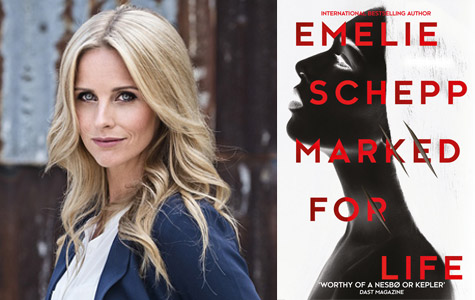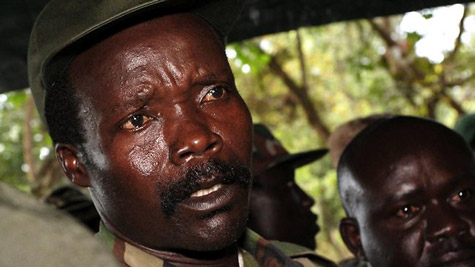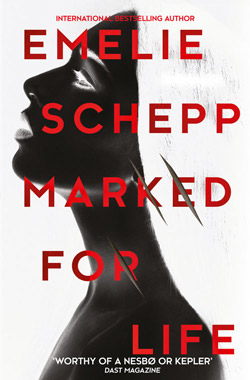
As with many other crime novels, my books are a mirror of the world and the society I live in. Swedish crime fiction often explores very dark themes and is greatly concerned with social issues and the problems of living here. Readers obviously feel a fascination with what we might call “Nordic melancholy,” concocted from winter darkness, cold weather, and isolated landscapes. And I do think that my books fit into this tradition. I am aware that readers in other countries have a romantic idea of Sweden as the best place to live, and I think it can be quite shocking to learn about Sweden as a society where violence, corruption, and murder actually exists.
My motivation as a writer is to try and understand why people turn to crime. Our personalities are formed by a complex interaction between genes and environment, and when I started writing Marked for Life, I knew that I wanted to write about a woman that was forced by others to be someone she wasn't born to be.
A good story is not always about how a victim is murdered; it is the characters and the interaction between characters you remember. In my debut novel Marked for Life, I wanted to write about a woman that should be odd. But I did not know how odd she was about to be until I read an article about child soldiers.
In 2012 there was a huge debate about child soldiers after the movie “Kony 2012” went viral. The movie was about Joseph R. Kony—the leader of the Lord's Resistance Army (LRA), a guerilla group that formerly operated in Uganda. He had been accused by government entities of ordering the abduction of children to become child soldiers. Over 66,000 children became soldiers.

As I read the article, I remember that I started questioning myself: What happens when a child is forced to be a solider? And what if a solider wants to be a child again? Is it even possible?
I also started to think about what would happen if there were child soldiers in Sweden. And, if I wanted to use the theme of child soldiers, where in Sweden could I find children? I know it sounds very strange, but I had to find children that no one would miss and no one would search for. Abducting a child in a playground often leads to quite a storm in the media, and I did not want that. I wanted the abduction to take place in secret, without anyone knowing.
One evening as I watched the news on TV, I saw a truck with a container that had overturned on a highway. When the police arrived at the scene, they found several refugees in the container. They had not been registered at the border. They were illegal. No one knew they were in Sweden. So I went down to the port of Norrköping and looked around. When I saw all the thousands of containers, I realized that anything could be hiding in them, including children—and that’s how I came up with the story about Jana Berzelius.
I have always loved reading suspense. Once I really thought about writing a book, there was never a question for me about what genre I would choose. But making time for writing was challenging. Since I still worked fulltime, I had to write at night. Every evening at 8 p.m., I sat down in front of my computer and wrote. I started in May 2012, and in September the very same year, I held the first draft in my hand. I then sent it away to the biggest publishing houses in Sweden and waited for them to get back to me.
After two weeks, I received an envelope from one of Sweden's biggest publishing houses. I wasn't excited at all because I knew that if it only takes two weeks to hear back, there is a good chance the response is, “Thank you, but no thank you.” And it was.
 I was a little bit depressed, though, because I had learned how difficult it is to get a publisher. And what would I do if every publisher said no? Would I give up? No. I knew there had to be some way to get my book published. So I searched the internet for alternatives and learned all about self-publishing. After six months, I decided not to wait for the publishers any longer. So I rang them and told them I was withdrawing my submission and that I would be publishing my novel on my own.
I was a little bit depressed, though, because I had learned how difficult it is to get a publisher. And what would I do if every publisher said no? Would I give up? No. I knew there had to be some way to get my book published. So I searched the internet for alternatives and learned all about self-publishing. After six months, I decided not to wait for the publishers any longer. So I rang them and told them I was withdrawing my submission and that I would be publishing my novel on my own.
I worked as hard as I could to sell my books. I visited retailers, small shops, and made my own signing tour. I believed that meeting my readers face-to-face would help me break into this competitive business. It did, but I also learned that it was the story itself that was the most important key to succeed.
Today, I am the most successful self-published author in Sweden. In 2016, I was voted the best Crime Writer of the year in Sweden, and my books are sold to 29 countries around the world.
Thanks to my determination and not giving up, I managed to sell a lot of books. But without my readers, I wouldn't have managed to succeed in the genre. My readers believed in the story about the complex character Jana Berzelius and actually started to spread the word about her. They posted comments on blogs and social media, giving their support online. Having fans recommending your book to others is the best marketing you can get.
To learn more or order a copy, visit:
Emelie Schepp is an international bestselling Nordic crime author with a career in marketing, publicity, and project management. She lives with her husband and two children in Sweden.
